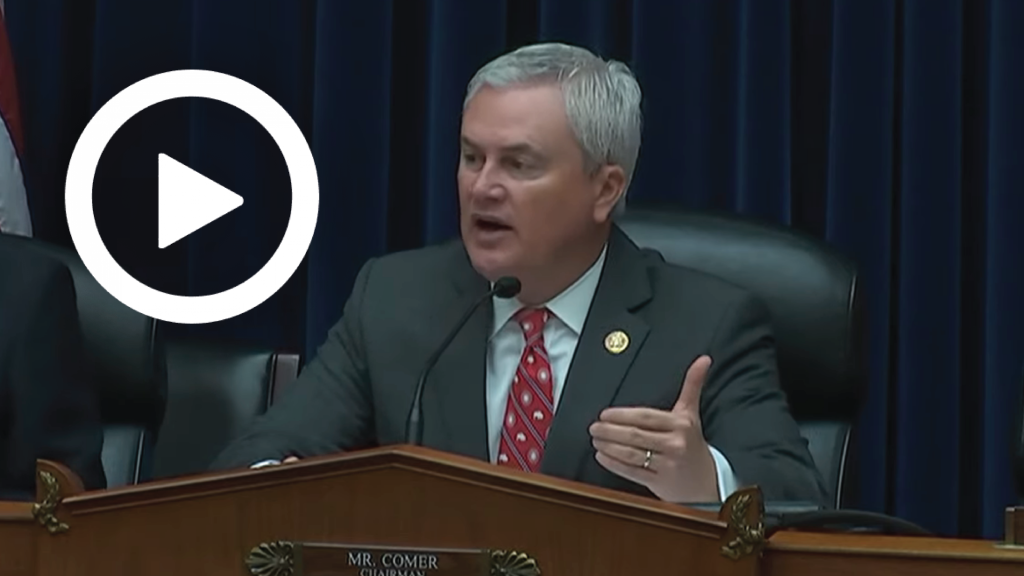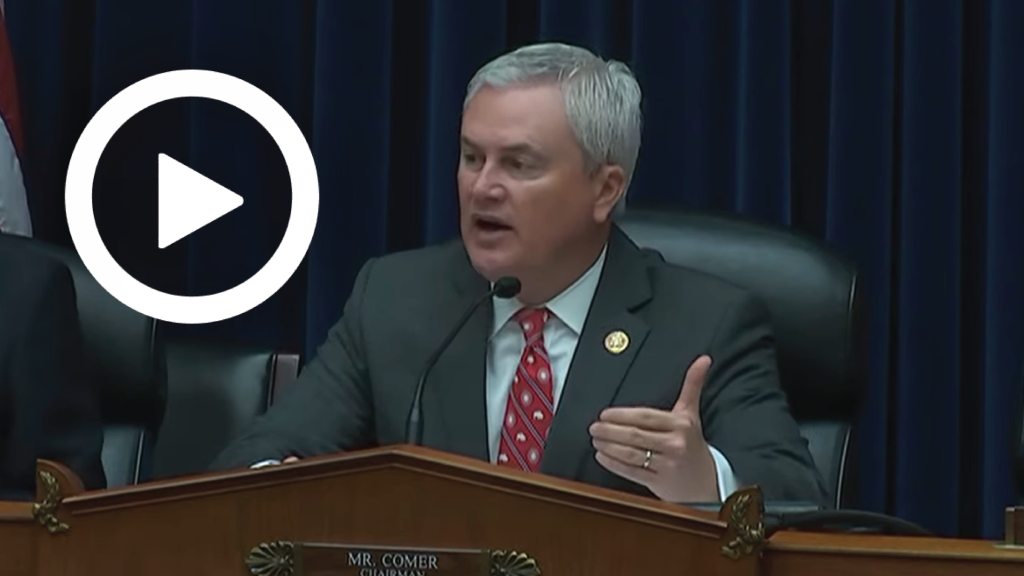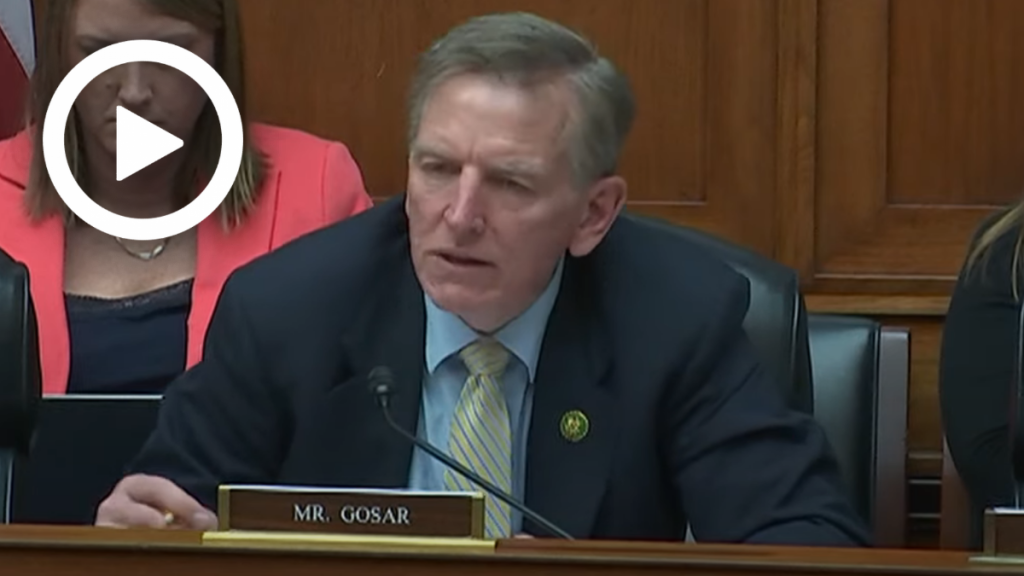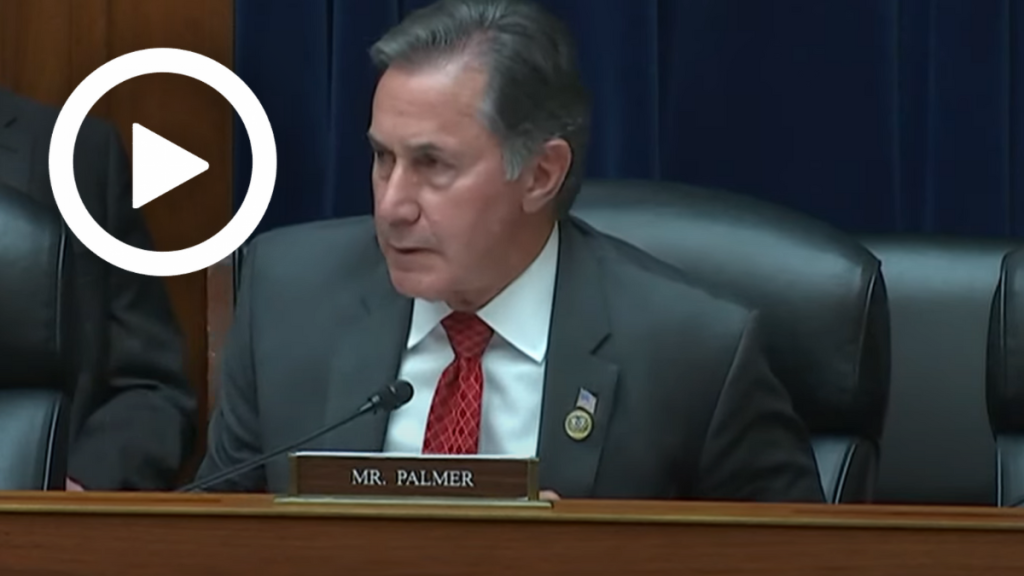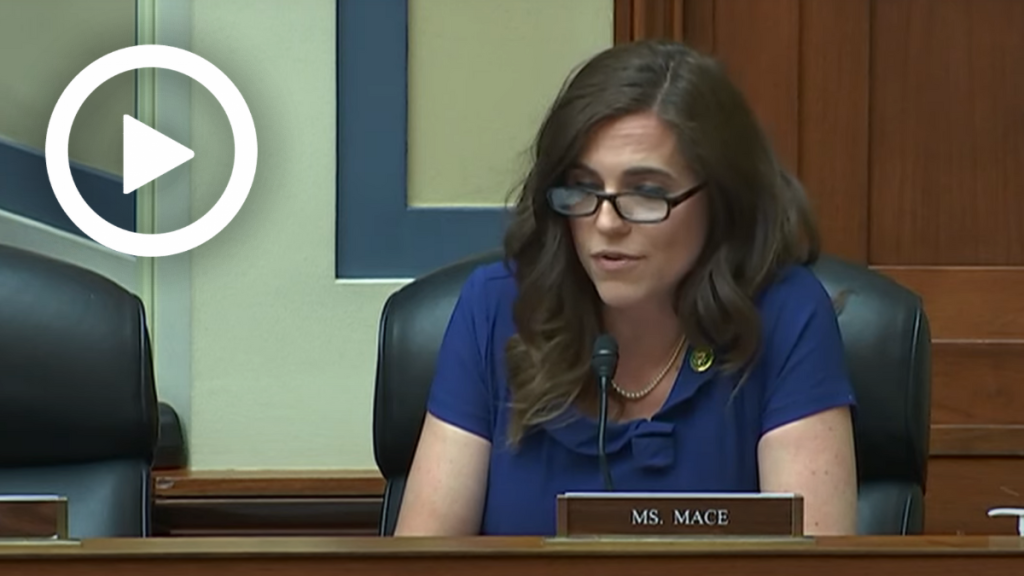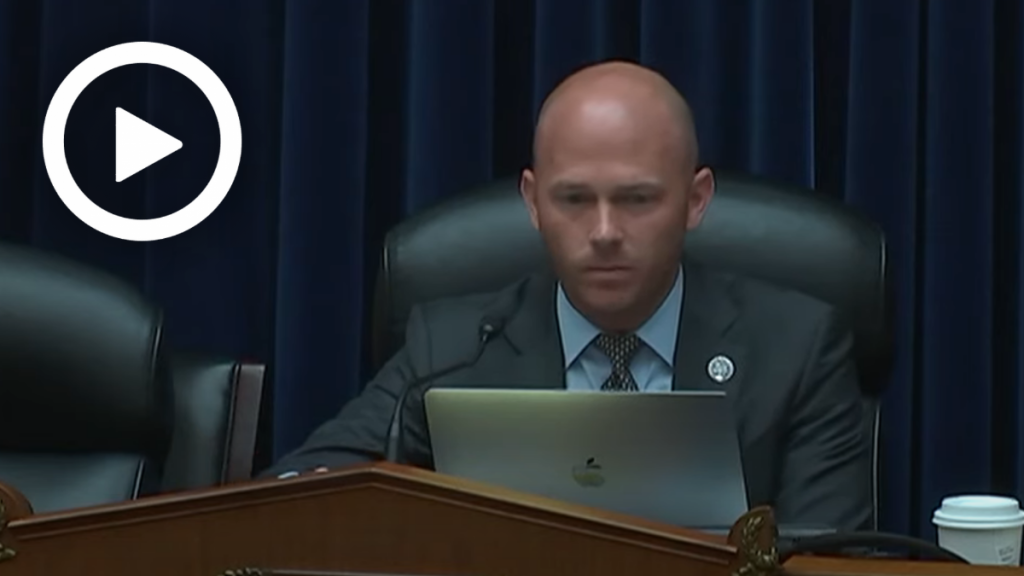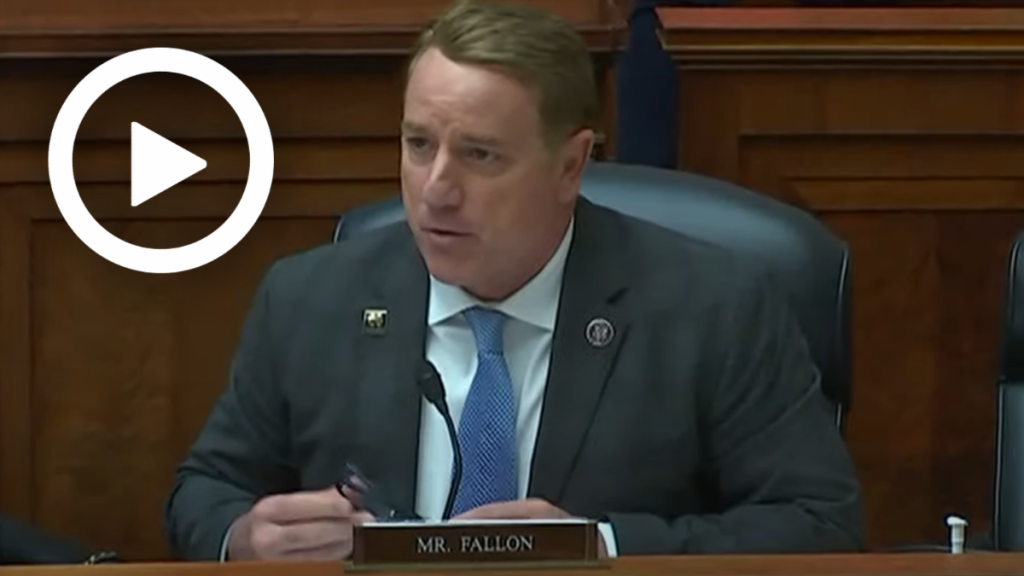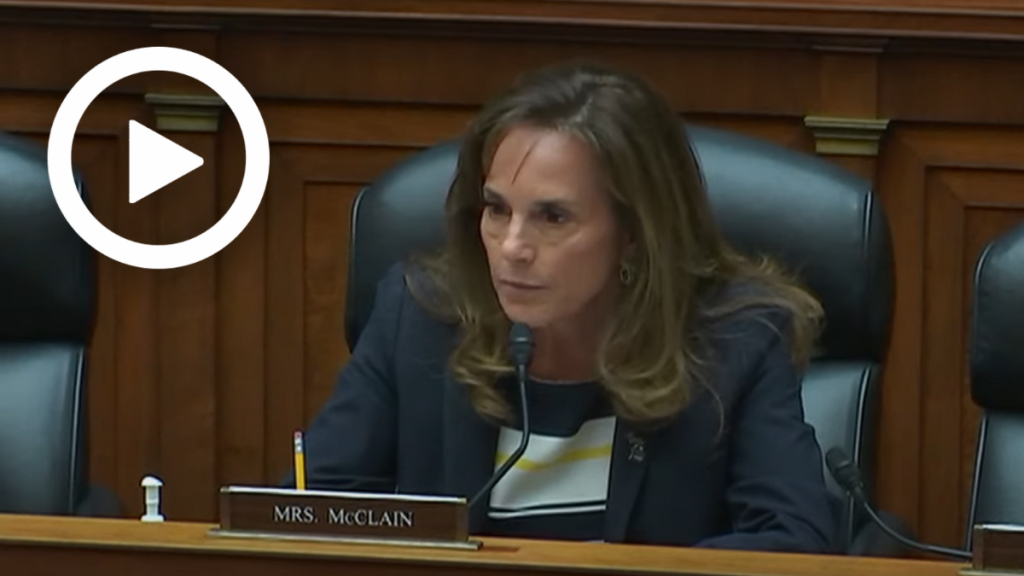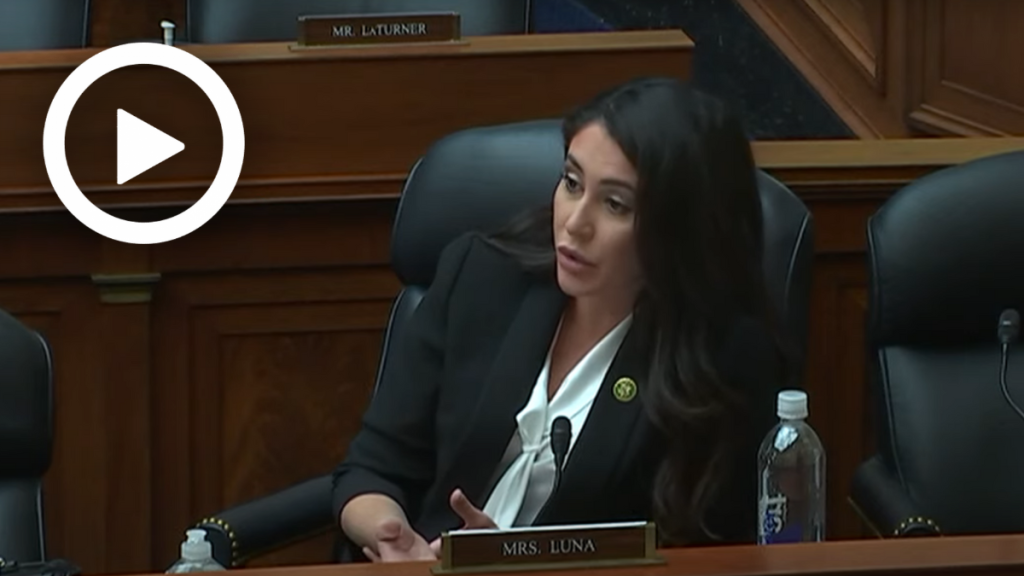Hearing Wrap Up: Congress Must Utilize GAO’s High Risk List to Effectively Combat Waste, Fraud, and Abuse
GAO finds federal programs are bloated and vulnerable to waste, fraud, abuse, and mismanagement.
WASHINGTON – Today, the House Committee on Oversight and Accountability held a hearing titled “The Government Accountability Office’s 2023 High Risk List.” At the hearing, members emphasized that federal government programs created and funded by Congress must fulfil their intended purpose and meet mission objectives. However, massive programs have struggled to fulfill their responsibilities and are vulnerable to serious waste and fraud. Outside of COVID relief programs, members highlighted how the Government Accountability Office’s (GAO) has identified roughly $250 billion taxpayer dollars lost to waste, fraud, abuse, and mismanagement annually. Members stressed that the GAO’s 2023 High Risk List will assist the committee’s efforts to prevent waste, fraud, abuse, and mismanagement and safeguard taxpayer dollars.
Key Takeaways:
The Oversight Committee has a responsibility to restore accountability and root out waste, fraud, and abuse in the federal government.
Taxpayers expect their government to work efficiently and effectively, but far too often the unchecked federal bureaucracy has led to inefficient and mismanaged federal programs.
The GAO has determined that many federal programs funded by Congress are bloated, struggle to meet their objectives, and have become vulnerable to serious waste, fraud, abuse, and mismanagement.
The GAO’s 2023 High Risk List is a powerful tool Congress can utilize to safeguard taxpayer dollars, combat waste, fraud, abuse, and mismanagement, and ensure massive federal government programs are operating as designed for the American people.
To prevent waste and ensure accountability, GAO’s work has made it clear that Congress must conduct more meaningful oversight, tracking, and data collection to determine how taxpayers’ dollars are being spent.
Member Highlights:
Committee Chairman James Comer (R-Ky.) stressed that GAO’s High Risk List will help Congress conduct meaningful oversight, address unchecked federal programs, minimize waste of taxpayer funds, and evaluate improvements that could be made to ensure an efficient and effective federal government.
Chairman Comer: “Federal government programs created and funded by Congress must fulfil their intended purpose and meet mission objectives while being careful stewards of taxpayer dollars. Yet too often, massive federal programs struggle to meet their objectives and become vulnerable to fraud and waste. The High Risk List is a critical tool for evaluating whether the programs created and funded by Congress are working as designed for the American people. Despite GAO’s best efforts to highlight problems and propose solutions, waste, fraud, and abuse in government is ever present.
“GAO’s work makes clear: We need to have more oversight, tracking, and data collection to determine how taxpayers’ dollars are being spent.”
In addition, Chairman Comer shined a light on the extensive amount of fraud in federal programs and Gene Dodaro, GAO’s Comptroller General, emphasized that federal agencies need to implement better fraud reduction measures.
Chairman Comer: “What is the total amount of improper payments that GAO estimates were made last year across the federal government?”
Gene L. Dodaro, GAO Comptroller General: “$247 billion dollars. I might add that the estimate is not complete. Since 2003, these estimates have totaled $2.3 trillion dollars.”
Chairman Comer: “Wow… Last Congress we heard from you about the need for more oversight over pandemic relief funds. As you testified at the 2021 High Risk hearing, when we spend close to $1 trillion dollars you stated that we need good accountability and transparency. Guess what Congress did with that advice you gave to this Committee? It rushed out another $1.9 trillion dollars in alleged pandemic relief… What has GAO learned about the federal government’s ability to conduct internal oversight since your last update and is are they truly equipped to oversee trillions of dollars?”
Gene L. Dodaro, GAO Comptroller General: “Agencies need to implement better fraud reduction measures. That’s the only real solution to this problem.”
Rep. Paul Gosar (R-Ariz.) confirmed that GAO has recommended policy and oversight improvements to the Department of Homeland Security (DHS) related to the Biden Administration’s ongoing border crisis.
Rep. Gosar: “There have been over 107,000 drug overdose deaths in 2022. Much of this death is due to policies that prioritize open borders. Has GAO issued recommendations to DHS on steps the agency can take to reduce border crossings…”
Gene L. Dodaro, GAO Comptroller General: “Yes we have.”
Rep. Gary Palmer (R-Ala.) stressed that Congress should work with the GAO to help and incentivize agencies to properly track taxpayer dollars. He noted that updating and modernizing the federal government’s data systems should be a priority.
Rep. Palmer: “We need to work with the GAO to help incentivize agencies… one place we can start is updating the antiquated data systems. Part of the problem is the lack of interface between data systems between states and the federal government. We don’t pay enough attention to how much money is going out of the Treasury… we are doing pay and chase rather than prevention.”
Rep. Nancy Mace (R-S.C.) also highlighted the importance of working with the GAO to enhance cybersecurity efforts and modernize the federal government’s IT systems.
Rep. Mace: “We need to keep data safe and secure. I know the GAO is in front on this. We really appreciate your reports on this and bringing cybersecurity to the forefront…”
Rep. William Timmons (R-Ariz.) pointed out that the Paycheck Protection Program suffered from massive fraud and Congress should look to reclaim fraudulent payments for American taxpayers.
Gene L. Dodaro, GAO Comptroller General: “We learned quite a bit. The SBA is trying to put into place a better fraudulent framework that meets GAO best practices.”
Rep. Pat Fallon (R-N.C.) highlighted the importance of agencies adopting GAO’s framework to combat fraud and noted that Congress needs to streamline efforts to make the federal government more efficient.
Rep. Fallon: “What do you think the total fraud is for the PPP program?”
Gene L. Dodaro, GAO Comptroller General: “There was $36 billion dollars estimated for improper payments.”
Rep. Fallon: “What can we do to prevent fraud?”
Gene L. Dodaro, GAO Comptroller General: “Not allow total self-certification. That invites fraud. We need to make sure agencies implement GAO’s framework for preventing fraud. We need to require control plans for emergency loan programs. Any new program over $100 million dollars in my opinion should be automatically deemed prone to improper payments.”
Rep. Lisa McClain (R-Mich.) pointed out that GAO has indicated that Health and Human Services (HHS) under the Biden Administration has failed to establish clear roles and responsibilities and consistent communication.
Rep. McClain: “The past two years, HHS under the Biden Administration I think has fallen short in many areas. The GAO has concluded that HHS has failed to establish clear roles and responsibilities, provide clear communication, and understand key partners…”
Rep. Anna Paulina Luna (R-Fla.) highlighted that the GAO has identified the need for oversight over food safety. She described how a national strategy to address food importation safety concerns is necessary.
Rep. Luna: “As of 2023, there were 37 areas on GAO’s High Risk List, one of which was improving federal oversight on food safety. One major area of concern is the use of food dyes… Another area is the importation process for foods. I recently visited a port where I witnessed the importation process firsthand and realized that seafood is not always tested when they arrive to ports. Which is a huge problem because studies have shown China seafood farms dump antibiotics into the ocean that are known to cause cancer.”
Gene L. Dodaro, GAO Comptroller General: “I have a lot of concerns. The last estimates showed 125,000 people get ill and 3,000 die from food imported. I am very concerned from a public health and safety perspective.”
READ MORE: We Must Safeguard Taxpayer Dollars and Combat Waste, Fraud, and Abuse
CLICK HERE to watch the hearing.
